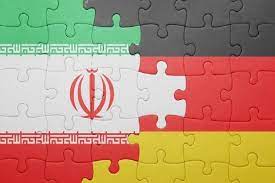Study in Germany Iran

Study in Germany Iran
Formerly known as Persia, Iran is the second-biggest country in Western Asia, with its capital in Tehran. The state borders Afghanistan, Armenia, Azerbaijan, Iraq, Pakistan, Turkey, and Turkmenistan. Iran also has access to the Persian Gulf, Gulf of Oman, and the Caspian Sea. The total area of the country is 1,648,195 km2, with over 83 million people from various ethnic groups, such as Persians, Azerbaijani, Kurds, Lurs, Turkmen, Balochi, and Arabs. Persian is the official language of the state, while the recognized regional languages are Azerbaijani, Kurdish, Gilak, Mazanderani, Luri, Balochi, Arabic, Armenian, Assyrian, Georgian, and others. Iran is a descendant of the Achaemenid Persian Empire and home to 26 UNESCO World Heritage Sites.
Due to its strategic location, Iran is a regional power in Asia. The country has large reserves of oil and natural gas, making it the middle power in the world. Iran is also a founding member of the United Nations, the ECO (Economic Cooperation Organization), the OIC (Organization of Islamic Cooperation), and the OPEC (Organization of Petroleum Exporting Countries).
Due to various factors, residents of Iran decide to flee the country and settle abroad. Today, more than 272,000 people of Iranian heritage live in Germany. They prefer to settle in Hamburg, Berlin, Frankfurt am Main, Essen, Cologne, Düsseldorf, Bonn, Münster, and Mainz. The tendency to earn post-secondary education abroad also urges nearly 2,000 students from Iran to study in Germany each year.
Types of Qualifications and Universities in Germany
The country has above 400 state-recognized institutions of higher education, which offer 20,000 different study programs overall. Students from Iran can choose to study in Germany in public or private post-secondary institutions that include universities, universities of applied sciences, schools of art, film, and music. The choice depends on specialization and the degree that international students want to obtain.
German higher education institutions offer bachelor’s, master’s, and doctorate qualifications. A bachelor’s degree is the first qualification recognized on the international job market. As a rule, a bachelor’s study program lasts six to eight semesters. Students from Iran who decide to study in Germany can pursue joint degrees that have two subjects or a single degree with one major and two minor subjects. With this qualification, students can either start working right after graduation or apply for a master’s degree.
Students from Iran who study in Germany and pursue a master’s study program extend the depth of their subject area over two to four semesters. This degree provides international students with more lucrative job offers and allows them to embark on a doctorate.
By the way, some bachelor’s and master’s programs of study in Germany, such as law or medicine, lead to state examinations. The final examinations are prepared and evaluated by a state-run examination board that decides whether graduates can start a career in their profession.
To study in Germany and pursue a Ph.D. degree, international students must obtain a master’s degree or pass state examinations. The length of the doctoral program ranges from two to five years. Moreover, international students ought to submit a Ph.D. thesis to complete a study program.
Speaking about the higher educational institutions, German universities mainly focus on theoretical knowledge and offer bachelor’s, master’s, and doctorate programs. Some universities specialize in specific subject areas and call themselves universities of education or universities of technology.
Students from Iran who want to study in Germany and pursue practice-orientated study programs tend to choose universities of applied sciences. The subject areas include technology, business, social services, and media. Some study programs have fixed periods where international students should complete internships or conduct projects in companies in Germany or abroad. Nevertheless, international students who decide to study in Germany and earn a Ph.D. degree apply to universities since only a few universities of applied sciences have this option.
At the university of art, film, and music, students from Iran can study creative subjects, including architecture, acting, dance, fine arts, music, industrial design, and fashion design. To study in Germany and pursue the mentioned programs, applicants must prove that they meet all requirements in an entrance examination. Moreover, international students ought to know that most art, film, and music school courses are taught in German.
International students who want to study in Germany and learn by doing so can apply for dual study programs. They allow combining academic studies with a job in a local company. Applicants must have a good command of German and have a signed contract with an employer. These programs are offered primarily by universities of applied sciences and universities of cooperative education.

Preferred Study Programs and Universities Among Students from Iran
Now it is time to discuss the most popular courses to study in Germany among students from Iran. Most of them prefer to pursue master’s and Ph.D. degrees since it is easier to study in Germany when students already have bachelor’s degrees. As a rule, students from Iran apply to the Technical University of Munich to pursue Engineering (Mechanical Engineering) and Computer Sciences programs. International students often obtain degrees in Business Management (MBA) at the University of Mannheim. Students from Iran also apply for Mathematics study programs at the University of Bonn. International students prefer to study Humanities at the Humboldt University of Berlin. Students from Iran choose to pursue Fine and Applied Arts programs at the Technical University of Berlin.
International students also apply to Heidelberg University, University of Freiburg, RWTH Aachen University, and the Free University of Berlin. By the way, Germany provides numerous unusual courses such as Aerial Archaeology, Bionics, and Fusing Technology, among other popular programs.
Tuition Fees for International Students
Speaking about the cost of study in Germany, study programs at public universities are free for both domestic and international students. Students from Iran only need to pay a nominal semester fee of about €200-300 to cover administrative costs and travel semester tickets. Still, international students who decide to study in Germany and pursue programs at private universities should be ready to pay from €12,000 to €15,000 per year. Most universities of applied sciences are private.
Language Requirements to Study in Germany from Iran
To study in Germany, students from Iran must have a good command of German or English. Public-funded universities have German as a medium of instruction, while private universities have programs in both English and German. International students who want to study in Germany and pursue a program in German should pass TestDaF. It has three levels, TDN 3, 4, and 5, which correspond to the B2-C1 levels of language proficiency. As a rule, German universities require TDN 4 level.
Students from Iran who decide to study in Germany and apply to courses taught in English should pass IELTS or TOEFL. German universities generally require an overall score of 6.5 for IELTS and scores in the range of 60-80 for TOEFL. Nevertheless, some universities may recognize other German and English proficiency tests. So, students from Iran need to check which one is required before taking the test.
As an option, international students can do pathway language programs in German or English with further admission to public or private universities at both undergraduate and postgraduate levels. The pathway program allows students from Iran to reach the required level of English or German with the necessary skills to pursue a program of study in Germany.

Perspectives of the Future Employment after the Study in Germany from Iran
Students from Iran can work during the study for up to 20 hours per week. After graduation, they can stay in Germany and apply for a work permit that is valid for up to 18 months.
In Germany, the top graduate jobs for international students are the following. Civil Engineers can earn €40,000 per year. Architect earns €53,600 per year. Mechanical Engineering Manager can earn about €54,100 per year. Financial Analyst earns up to €56,300 per year. An IT Manager can earn about €76,100 per year. Automotive General Manager earns €81,900 per year.
As soon as students from Iran have an offer of employment, they should apply for a German residence permit or EU Blue Card. Foreign residents who decide to settle in the country ought to apply for a settlement permit after at least two years of getting the permanent residence permit or EU Blue Card.
In case, if you need help with admission to German schools in order to study in Germany from Iran, please fill in application below or contact us directly.

